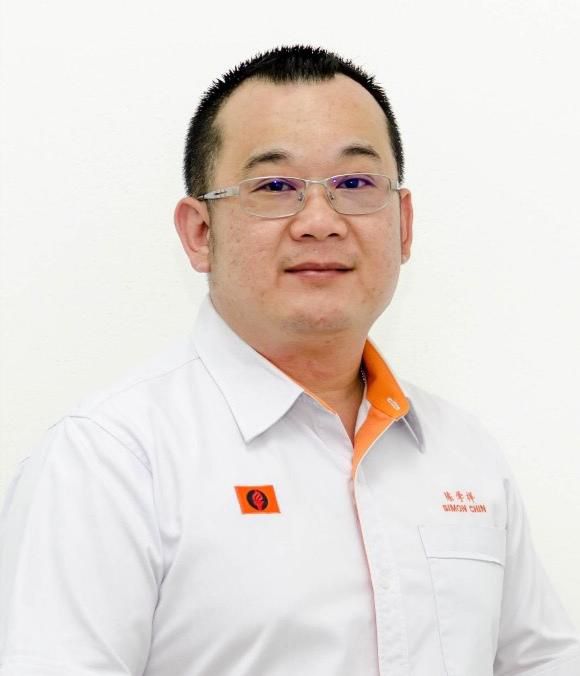KOTA KINABALU (Aug 18): The Education Ministry has been urged to immediately revise the learning and teaching approach of primary school syllabus to address the drop in the enrolment numbers of students opting for the Science stream in secondary schools.
Liberal Democratic Party (LDP) chief publicity officer Simon Chin said this is to ensure our country is able to produce Science, Technology, Engineering and Mathematics (STEM) talents that could compete at the global level.
“Although the number of Science graduates is on a decline annually, we cannot ignore the fact that Mathematics is fundamental in nurturing Science talents.”
“Under the current education system, many students find Mathematics boring and thus lack interest in learning the subject.
“This is because the teaching approach emphasizes more on imparting knowledge to the students, rather than sparking their interests and creativity.”
He pointed out that the conventional teaching method is inclined towards a one-way approach whereby students are taught to remember the formulas, theorems and solutions through repeated drilling by the teachers.
“While this approach enables some students to master the basic skills within a short period of time, it is ineffective in encouraging a more proactive approach in learning, which discourages students from committing to deeper learning in Mathematics over time.”
In addition, Chin said the existing textbook context focuses more on theories rather than application in real world situations.
He said the disconnect between theory and practice makes it hard for students to apply what they have learned into their daily lives, which leads them to perceive that there is no use for Science or Mathematics subjects at all.
“It is also important to review the teaching methods as different students require different approaches in learning.
“We could introduce more diversified teaching strategies, such as interactive learning, project-based learning or gamification, to cater for the different needs of students and inspire them to learn.”
He pointed out that an interesting teaching approach is crucial to enhance students’ interests in STEM.
“Studies have shown that students absorb knowledge better when they learn in a relaxed, happy environment.”
He proposed four research-backed strategies to improve the teaching and learning of Mathematics.
The first is gamified learning that incorporates Mathematics elements in entertaining games to increase students’ participation and sense of accomplishment.
For instance, he said teachers could introduce Mathematics contests, brain games or math mazes in order for students to find joy in problem solving.
“This approach will not only boost their interests in learning, but also enhance their mathematical abilities.”
The second strategy is project-based learning that connects Mathematics to real world situations, he said.
For instance, he said teachers could instruct students to work out a ‘family budget’, in which the students learn to calculate their incomes and expenditures.
“This method will help students see the relevance of Mathematics in their daily lives and improve their ability to solve real problems.”
The third approach is interdisciplinary teaching whereby Mathematics is taught in combination with other subjects, he explained.
As an example, Chin said geometry and arts could be combined so that students do not only learn about the subject, but also get to create artworks.
“This learning approach will not only expand the students’ mindset, but also make them realize the diverse and practical usage of Mathematics.”
The fourth strategy is situational learning whereby students learn Mathematics in real or mock scenarios.
For instance, he said teachers could design a mock shopping scenario in which students have to complete their shopping mission by calculating the prices of goods and quantities.
“This learning approach will make Mathematics more relevant to their daily lives, thereby enhancing students’ motivation to learn.”
Chin emphasized that nurturing students’ interests in STEM is not only important to their future careers, but also has a far-fetching impact on our country’s progress.
“Mathematics and Science are cornerstones of technological advancement.
“The demand for STEM talents is going to increase drastically following the rapid development in cutting-edge technology such as artificial intelligence (AI), big data and quantum computing.
“If we are able to cultivate pupils’ interest and ability in STEM at a young age, they will have a higher chance of succeeding in these fields and contribute to technological innovations in our country in the future.
“Science and Mathematics are vital to enhance our nation’s competitiveness.”
Chin pointed out that the strength of a country is not only reflected by its economic and military powers, but also its education and human capital.
By improving our education approach, the country will be able to produce more innovative STEM talents that could put our country in a better position to compete globally.
“Continuous education reform and innovation is the only way to produce globally competitive Science and Mathematics talents who can adapt to progress and realize technological advancement and social progress in our country.”



